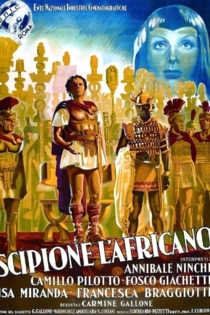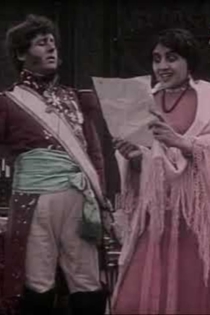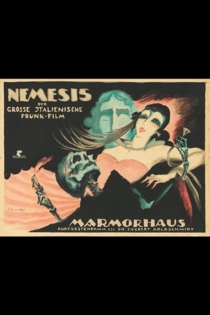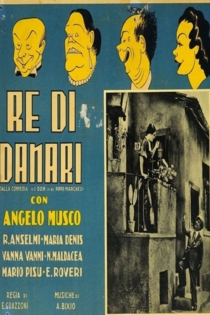
Ciro Galvani
2021Salomé
Ugo Falena
Vittoria Lepanto, Laura Orette
Based on Oscar Wilde's version of the story, what is noteworthy is the sheer luxury of the production, an attempt to capture the wild and weird Aubrey Beardsley illustrations that transfigure the work. The sets are elaborate, with stonework and palm trees and draperies. There seem to be dozens of dress extras, courtiers at Salome's dance and soldiers.
Salomé
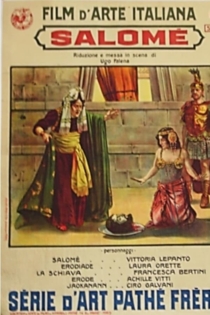
La nave
Mario Roncoroni, Gabriellino D'Annunzio
Ida Rubinstein, Alfredo Boccolini
The newly-settled city of Venice in the Sixth Century AD: A wandering people struggle to establish Christian Theocracy. Basiliola Faledro, an exotic dancer, wicked and cunning, arrives from faraway lands seeking to avenge her pagan lineage; Her father and brothers blinded and humilated by frenzied zealots. Her primary targets are the brothers Gràtico, both newly-elected to positions of power: One, Marco, an arbiter and tribune, the other, Sergio, a bishop. The title refers to a bold pronouncement made by Deaconess Ema Gràtico to her subjects the Venetians, a seafaring and desperate tribe-- That their native homeland is aboard a ship.
The Ship
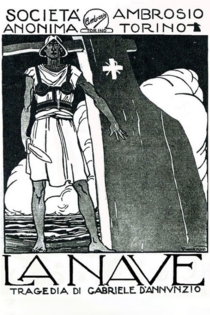
Il ratto delle Sabine
Ugo Falena
Ciro Galvani, Carlo Duse
A early film adaptation of "The Rape of the Sabines" which is an episode in the legendary history of Rome, traditionally said to have taken place in 750 BC, in which the first generation of Roman men acquired wives for themselves from the neighboring Sabine families. The English word "rape" is a conventional translation of Latin raptio, which in this context means "abduction" rather than its prevalent modern meaning in English language of sexual violation.
The Rape of the Sabines

